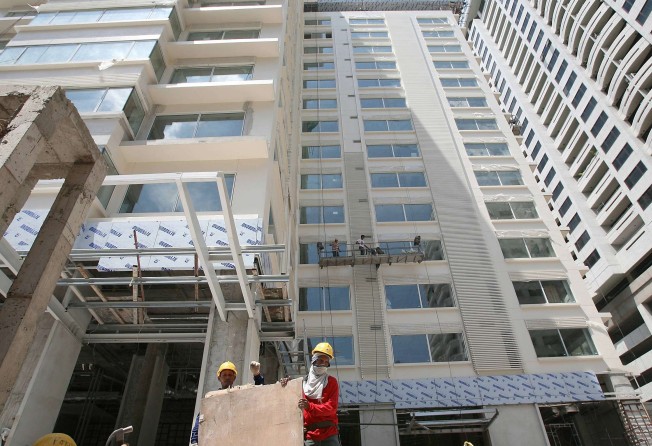Thai developers target customers in mainland China, as demand plateaus in Hong Kong
Companies set ambitious sales targets on rising demand from customers in mainland China for retirement and holiday homes

Home developers from Thailand are eyeing customers in mainland China to prop up sales as home demand has stagnated in other major overseas markets like Hong Kong.
Sansiri Public, one of the three largest real estate developers in Thailand, has inked a partnership with Fang, China’s largest property information listing service, to attract more investors from the mainland. Like Sansiri, other developers are also following suit.
Hong Kong has been the largest overseas market for Sansiri, accounting for 45 per cent of its customers. Singapore was second with a 25 per cent share, while mainland customers accounted for 20 per cent.
“Investment from Hong Kong has plateaued. But we anticipate strong growth from mainland China,” said Cobby Leathers, director of international business at Sansiri. The Thai developer has set an ambitious 200 million yuan (HK$236 million) sales target for mainland China this year.
Last year the company sold 84 million yuan worth of property to Chinese investors, a three-fold increase over the numbers in 2014.
Si Zhi, vice president of Soufun Holding, which owns Fang,com, said in terms of customers, Hong Kong is just “a drop” compared with the “sea” in the mainland. “The ‘drop’ has a huge market share now. But think of the potential if the ‘sea’ if tapped!” he said.
Wu Ming, a 40-year-old investment banker recently bought a townhouse in Phuket. “I bought it because we liked it and wanted a place that we could go to during long weekends. We also wanted a place that we could rent out so that it can pay for itself.”
Hou Shiqiang, a middle-aged businessman who is also a real estate industry professional, said though he is interested in buying a Thai property, he is concerned about the issue of information asymmetry.
“As a person in the industry, I know many stories of investors who get cheated by agents, especially as they inflate the actual value of an overseas property. Many Chinese just go to a place, fall in love with it and decide to buy a house,” he said. “I won’t do that,”
Hou said it was most likely that he would just go to Thailand for holidays and use the property a few days a year. It would be attractive if property service companies can find tenants for me when I am not in residence, he said.
Anchalika Wongwaiwisarn, managing director of Ancha Property, a Thai housing agent expects to see a steady pickup in demand from mainland China. “I expect to see more Chinese transactions this year, with Chiang Mai leading the way. The political problems in Thailand would not impact Chinese real estate interest,” she said.
According to her, Chiang Mai is a popular destination known for its affordability, with not too much of high-priced interest. Phuket is more like a lifestyle investment, with less expectations of capital gains compared to Bangkok. In the Thai capital, annual rental income is about 5 to 8 per cent, compared to 1 to 3 per cent in China’s biggest cities.
According to data provided by Juwai, a property portal similar to Fang.com but targeting overseas property, Thailand ranked fifth in terms of overseas enquiries during the first quarter.
“Thailand is a very attractive market due to its low entry price, high quality construction, proximity to China and reasonable investment outlook. It’s still a relative unknown for most Chinese investors, but that is changing fast,” said Charles Pittar, CEO of Juwai.
According to Juwai data, lifestyle and tourism (68 per cent) demand accounted for most of the demand, compared with investment(42.6 per cent) and emigration(21.4 per cent).
Thawatchai Thongcharoen, manager of Bella Condo, a Thai developer targeting middle to high-class customers said demand for condominiums has been rising, especially from Chinese customers as they are most cost-effective in terms of investment. In addition, they are also the only properties that foreigners can own in Thailand.
Muangphum Harnsiripetch, a marketing manager with Kingdom Property, a Thai developer, said in the last six months his company sold about 50 per cent of its condo project in Pattaya, with 40 per cent of the overseas customers from the mainland, Hong Kong and Taiwan.
He said most of the mainland buyers are from southern Guangdong, aged between 50 and 60 and seeking retirement homes. The condos are priced between 700,000 to 1 million yuan, much affordable than in China.
To attract potential buyers, his company routinely facilitates Chinese travel groups to Thailand, with a target to sell homes. He said his company relies on individual local agents to reach out to customers, instead of big websites because of the costly fees. There are many small developers like his, he said.